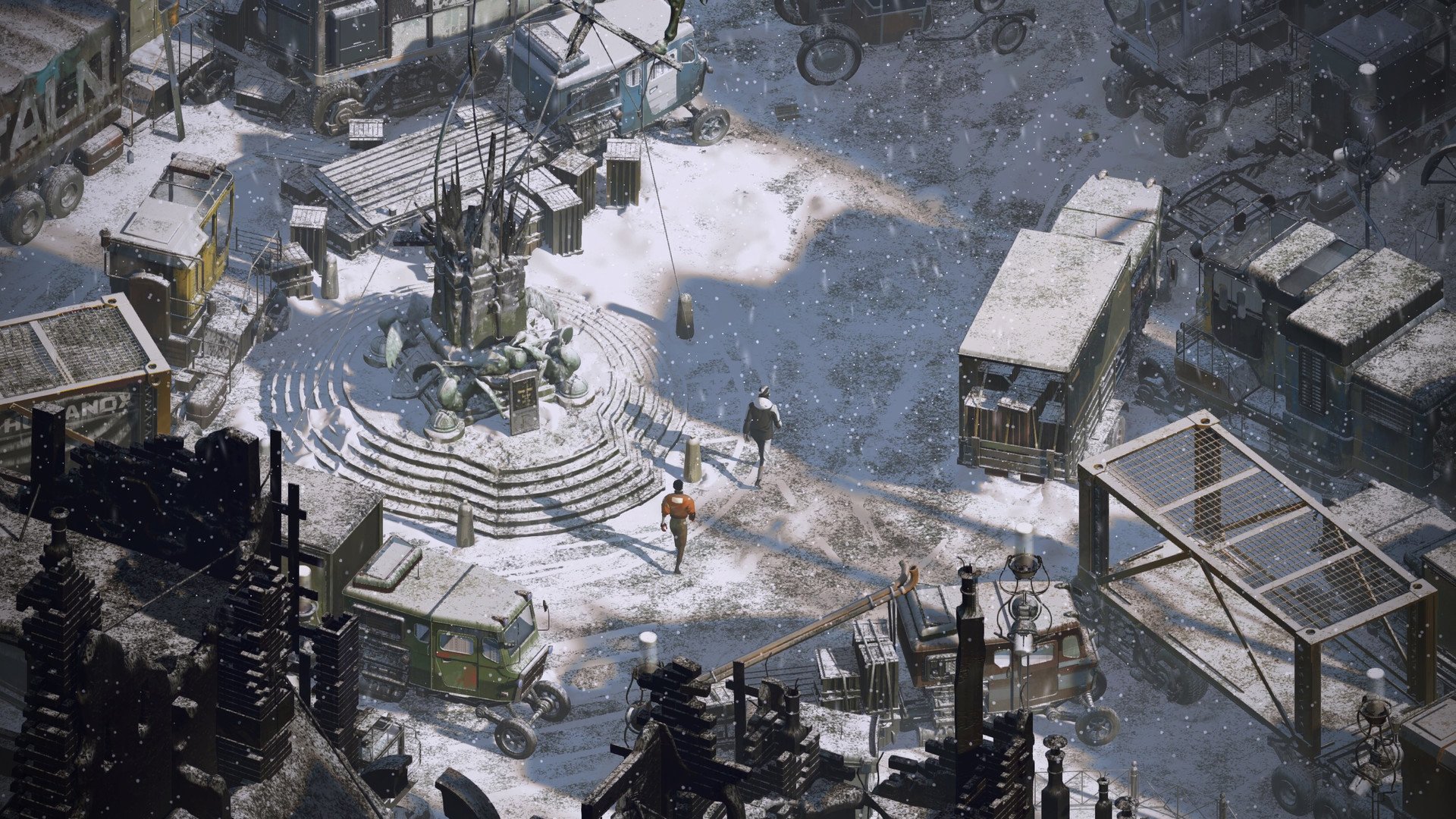The core aspect surrounding the gameplay of Disco Elysium revolves around Harry and Kim exploring the seaside town of Revachol after one of Harry’s mind wiping alcoholic benders which leaves him with a severe case of amnesia. The player interacts with this retro-punk styled world and the people in it to discover details about a murder which Harry was meant to be investigating. You slowly begin to learn the people involved and larger story surrounding it while using a dice roll system to determine whether Harry succeeds or fails in basic tasks that can result in his death, such as sitting in a chair. What makes Disco Elysium a nonsensical slog through fictional philosophism is the inordinate amount of time-wasting dialogue and book length details about events that simply don’t matter.
The core system of the game involves a leveling system which allows the player to completely determine Harry’s political beliefs, moral compass, relationship to women, and his past from the ground up. Having to rebuild this character into something entirely made up by the player only serves to make our protagonist a sad shell for the player to finger paint over until he resembled a character. The only personality trait we begin with is that Harry hates himself and drinks like a fish, but we can easily just choose to reverse those parts of him without consequence. As for the political and socio-economic leanings we can provide for Harry, he tends to adopt them almost whole heartedly and throw in textbook style examples into his dialogue with random strangers, opening potentially hour long discussions of the socio-political climate of fictional places. Wasn’t this game supposed to be about a murder?
Which leads to the game’s biggest problem, it’s absolutely filled with time wasters. There is no concise story or progress route the player can take to reach a clear goal, or end, without sacrificing necessary points meant for leveling crucial skills. Without them, Harry is likely to miss out on progress locking items or dialogue options which can sometimes even kill him, restarting miles of progress and forcing the player to click through insanely long dialogues.
If the player chooses to sift through the entirety of what is available to them, they might find an abandoned building, which now only a bookshop remains as one of its businesses. The player learns that the other failed businesses once housed in the derelict complex was a sort of role playing game company that used the radio. You can learn about the company’s entire history, the lore of the game they invented, the reason why they failed to maintain profits, and specific relationships between employees within the company, and none of it matters to the story. In fact, none of it matters to anyone outside of the building itself.
Putting aside the egregious amount of time and effort the story puts into revealing the economic and political consequences of fictional people in fictional places the player doesn’t even have access to, there is so much that the game provides for the player which completely distracts from anything the protagonist should even remotely care about, and it’s not just a few dialogue boxes or thought bubbles to provide context, it’s hours of gameplay and miles of text. The failed role-playing business is just one example of the potential scope this game offers to waste your time on.
I’m not saying this game isn’t for anyone, in fact a proportionately high amount of players will praise the game for it’s writing, characters, and story-telling. What I’m warning potential players is that if you’re looking to play a narrative heavy game which centers on a grizzled detective solving a murder in a unique world, than prepare for lengthy discussions of the effects of war, politics, economics, and racism on every aspect of this town, as well as nearby countries, and everyone inside it, past or present, that takes up significantly more time and exploration.
Instead, you should play The Wolf Among Us. Which contains socio-economic discussions of a fictional world and fictional people, a grizzled detective the player can influence, and a murder central to the story. Except this game accomplishes these things in a concise and forgiving manner which doesn’t require unnecessary side tracking and many hours of dialogue sifting.

Matthew has been a lifelong lover of video games since he could first hold a controller, and among his favorites are narrative-heavy, singleplayer games like; Divinity: Original Sin 2, Elden Ring, Sekiro: Shadows Die Twice and Hollow Knight. Matthew also plays tabletop games like Dungeons & Dragons, Pathfinder and Call of Cthulu. He graduated from the University of North Texas with a bachelor’s in Sociology and minored in English.






